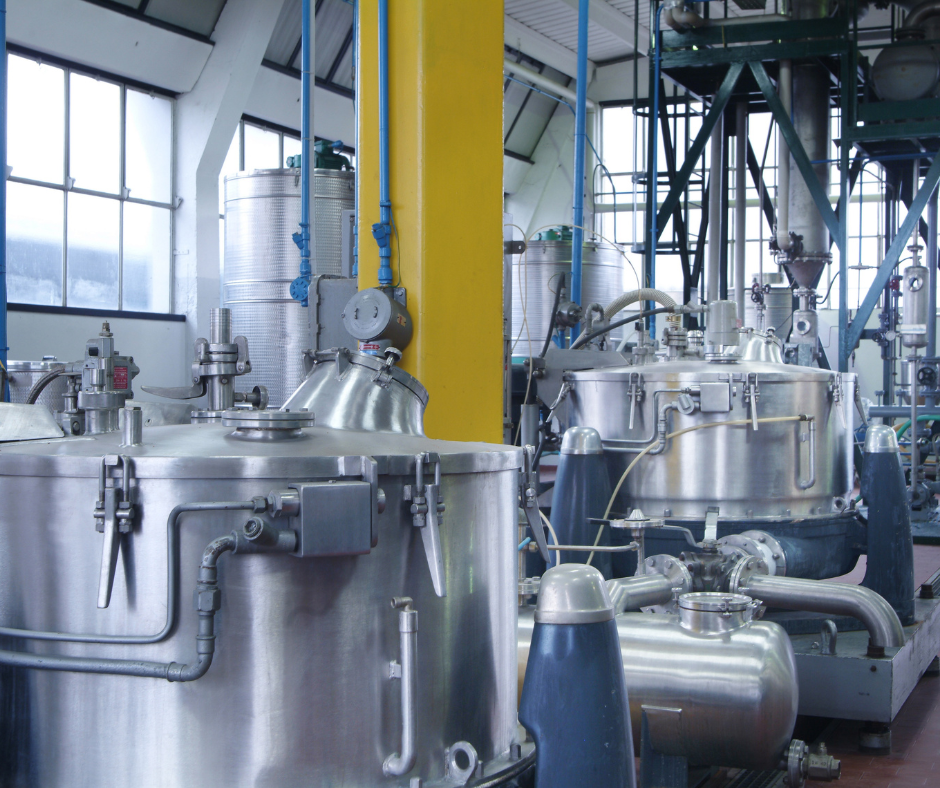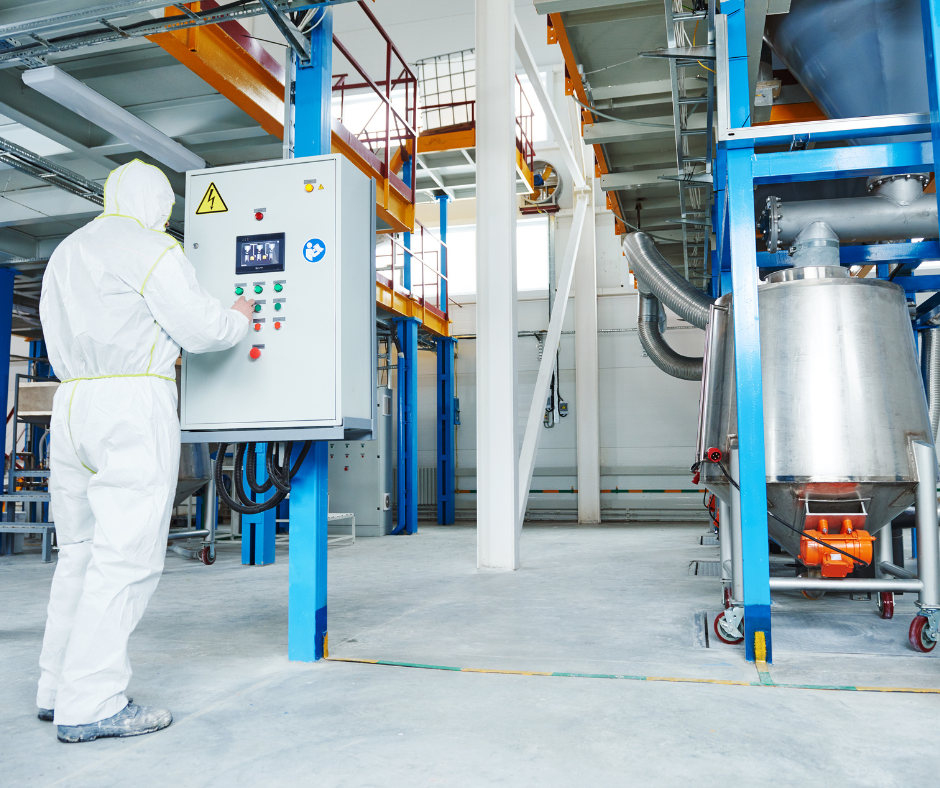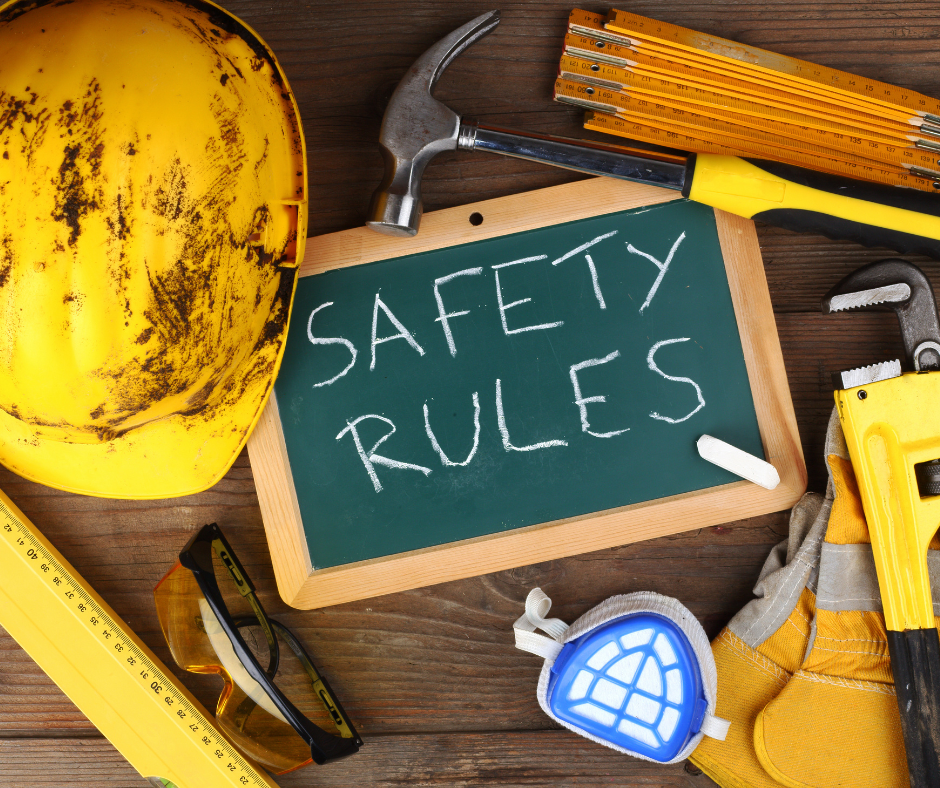Chemical manufacturing is a complex and potentially hazardous process involving handling and processing various chemicals, some of which can be highly reactive or toxic. Ensuring the safety of employees, the environment, and the surrounding community is of utmost importance in the chemical manufacturing industry. Advanced safety measures play a critical role in minimizing the risks associated with chemical manufacturing and preventing accidents from occurring.
In this article, we will discuss the importance of advanced safety measures in chemical manufacturing and the various strategies that can be employed to ensure the safe handling and processing of chemicals.
- Minimizing Exposure to Hazardous Chemicals
- Process Safety Management
- Hazard Communication
- Emergency Response Planning
- Continuous Improvement
- How can Deskera Help You?
- Conclusion
Minimizing Exposure to Hazardous Chemicals
The first step in ensuring chemical manufacturing safety is minimizing exposure to hazardous chemicals. Chemicals used in manufacturing can have various health hazards, including carcinogenicity, reproductive toxicity, and neurotoxicity. The Occupational Safety and Health Administration (OSHA) has established permissible exposure limits (PELs) for many hazardous chemicals, representing the maximum amount of a substance that workers may be exposed to during an 8-hour workday.
Advanced safety measures in chemical manufacturing can be used to minimize exposure to hazardous chemicals. This can include using personal protective equipment (PPE), such as respirators, gloves, and goggles, to protect workers from exposure to hazardous chemicals. In addition, engineering controls, such as ventilation systems and closed-loop systems, can be used to minimize exposure to hazardous chemicals.
Another important strategy for minimizing exposure to hazardous chemicals is implementing a control hierarchy. This includes:
- Elimination or substitution of hazardous chemicals with less hazardous ones where possible.
- Engineering controls to isolate workers from the hazard, such as enclosing processes and using local exhaust ventilation systems.
- Administrative controls to change the way work is done, such as implementing safe work procedures and providing training.
- Personal protective equipment (PPE) to provide a final line of defense if exposure cannot be eliminated through other controls.
By implementing a hierarchy of controls, manufacturers can systematically reduce the risk of exposure to hazardous chemicals and ensure that employees are protected from harm.
Process Safety Management
Process safety management (PSM) is a systematic approach to managing the risks associated with chemical manufacturing processes. PSM involves identifying, evaluating, and controlling the hazards associated with a manufacturing process, and ensuring that these hazards are effectively managed throughout the life cycle of the process.
The elements of PSM include:
- Process safety information: Documentation of the chemical hazards and potential hazards associated with a process.
- Process hazard analysis: Systematic review of the process to identify potential hazards and evaluate their risks.
- Operating procedures: Written procedures for operating the process safely and consistently.
- Training: Training of employees on the process, the hazards associated with it, and the control measures in place to mitigate those hazards.
- Mechanical integrity: Maintenance and inspection of equipment to ensure it is functioning safely and reliably.
- Management of change: Procedures for managing changes to the process that could impact its safety.
- Pre-startup safety review: Review of the process and its safety controls before it is started up.
- Emergency planning and response: Plans and procedures for responding to emergencies, including spills and releases of hazardous chemicals.
- Compliance auditing: Periodic audits of the PSM program to ensure that it is effective and in compliance with regulations.
PSM is a critical component of chemical manufacturing safety, and its implementation can help to prevent accidents and protect employees and the environment.
Hazard Communication
Hazard communication is the process of communicating information about the hazards associated with chemicals used in the manufacturing process. This includes providing information about the potential hazards of chemicals, as well as the appropriate precautions for their safe handling and use.
The Hazard Communication Standard (HCS) is a regulation established by OSHA that requires manufacturers to provide information about the hazards associated with chemicals used in the workplace. This includes labeling chemicals, providing safety data sheets (SDSs), and training employees on the proper handling of chemicals.
Advanced safety measures in chemical manufacturing can be used to enhance hazard communication. This can include the use of electronic SDSs that are easily accessible to employees, as well as the use of labeling systems that provide more detailed information about the hazards associated with a chemical.
In addition, hazard communication can be enhanced through the use of hazard communication training programs. These programs can educate employees on the hazards associated with chemicals, as well as the appropriate precautions for handling and using these chemicals safely.
Emergency Response Planning
Despite best efforts to minimize the risks associated with chemical manufacturing, accidents can still occur. Advanced safety measures in chemical manufacturing should include emergency response planning to ensure that employees and the surrounding community are protected in the event of an accident.
Emergency response planning should include procedures for responding to chemical spills, fires, and other emergencies. This can include procedures for evacuating the facility, containing spills, and providing medical assistance to injured employees.
In addition, emergency response planning should include the development of communication plans to ensure that employees and the surrounding community are notified in the event of an emergency. This can include the use of warning systems, such as alarms and sirens, as well as the use of social media and other communication channels to disseminate information quickly.
Continuous Improvement
Advanced safety measures in chemical manufacturing should be viewed as an ongoing process of continuous improvement. This means regularly reviewing and improving safety processes and procedures to ensure that they are effective and up to date.
Continuous improvement can be achieved through a range of strategies, including the use of safety audits and safety committees. Safety audits can be used to identify areas of the manufacturing process that may pose a safety risk, while safety committees can be used to identify and implement safety improvements.
In addition, manufacturers can use safety metrics to track safety performance over time. This can include tracking the number of accidents and near misses, as well as the effectiveness of safety controls.
Continuous improvement is critical to ensuring that advanced safety measures in chemical manufacturing remain effective and up to date, and that the risks associated with chemical manufacturing are minimized.
How can Deskera Help You?
Deskera's integrated financial planning tools allow investors to better plan their investments and track their progress. It can help investors make decisions faster and more accurately.
Deskera Books can assist you in automating your accounting and mitigating business risks. Deskera makes it easier to create invoices by automating many other procedures, reducing your team's administrative workload.
Deskera also offers a suite of integrated applications to help businesses manage their financials, inventory, and operations. Furthermore, other business aspects such as HR (Deskera People), CRM (Deskera CRM), and ERP are provided by Deskera. These could be crucial and can help short sellers keep track of their businesses and make better decisions.
Conclusion
Advanced safety measures are critical to ensuring the safe handling and processing of chemicals in the manufacturing industry. These measures can include minimizing exposure to hazardous chemicals, implementing process safety management, enhancing hazard communication, emergency response planning, and continuous improvement.
By implementing advanced safety measures, manufacturers can minimize the risks associated with chemical manufacturing, prevent accidents from occurring, and protect the health and safety of employees and the environment. Chemical manufacturers need to prioritize safety and continuously strive to improve their safety processes and procedures to ensure that they remain effective and up-to-date.
Related Articles












